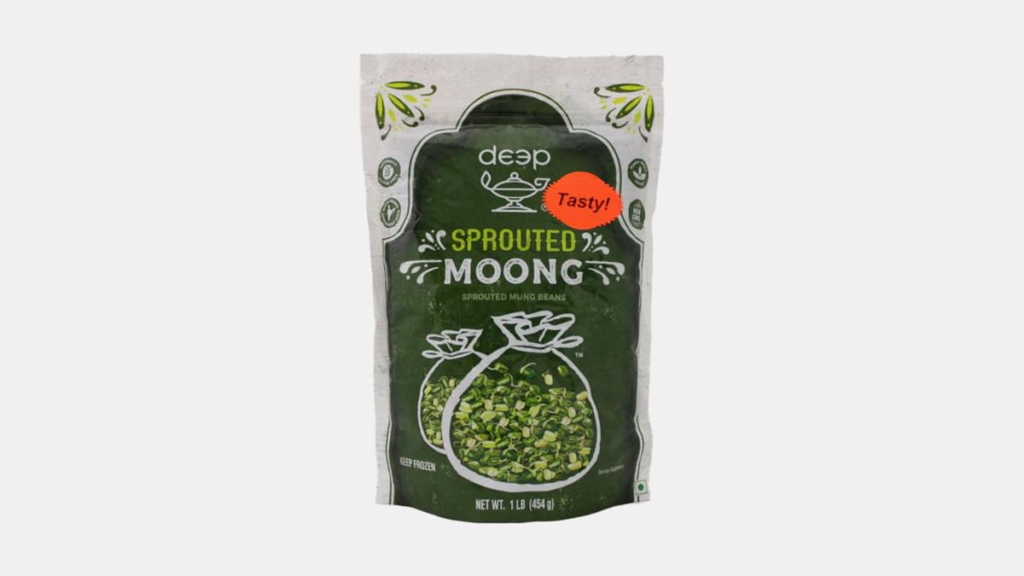Frozen sprouted beans sold across the United States are being urgently recalled after they were linked to a growing salmonella outbreak that has sickened dozens of people. The U.S. Food and Drug Administration (FDA) and Centers for Disease Control and Prevention (CDC) confirmed that several cases of foodborne illness are tied to contaminated sprouted products.
As the investigation continues, consumers are being warned to check their freezers immediately and avoid eating any frozen sprouted beans from the affected batches.
This recall affects multiple states and retailers, raising concerns about food safety and prompting questions about what to do if you’ve already consumed the product.
Here are six important facts you need to know about the salmonella outbreak and the nationwide bean recall.

1. What Products Are Being Recalled?
The recall involves frozen sprouted bean products sold under various brand names, including those used in health-conscious frozen meals and vegetarian recipes.
The specific products affected include:
- Frozen sprouted mung beans
- Frozen sprouted lentils
- Mixed bean blends with sprouts
- Organic sprouted beans packed for health food stores
Many of the recalled items were distributed nationwide and sold through major grocery store chains, natural food outlets, and online retailers.
Product packaging typically lists terms like “sprouted,” “organic,” “ready to cook,” or “frozen bean mix.” Authorities have provided full product codes and best-before dates on their official websites, urging consumers to verify what they’ve purchased.
2. What Is Salmonella and Why Is It Dangerous?
Salmonella is a type of bacteria that can cause serious illness in humans. It is commonly spread through contaminated food or water and affects the digestive system.
Symptoms of salmonella infection include:
- Fever
- Diarrhea
- Nausea
- Vomiting
- Abdominal cramps

In most healthy adults, salmonella infection lasts 4 to 7 days and may resolve without treatment. However, for vulnerable groups including young children, elderly adults, pregnant women, and people with weakened immune systems the illness can become severe or even life-threatening.
According to the CDC, many of the recent salmonella cases linked to the frozen bean recall have resulted in hospitalizations.
3. How Many People Have Been Affected?
As of the latest update from health officials, more than 30 confirmed cases of salmonella illness have been reported across at least 10 U.S. states. However, that number may rise as more people report symptoms and test results are finalized.
States with known cases include:
- California
- New York
- Illinois
- Texas
- Florida
These cases were all linked to the same genetic strain of salmonella, and investigators have found a strong connection between patients and their consumption of frozen sprouted bean products.
Public health labs are now running advanced testing to trace the exact source of the contamination.
4. Why Sprouted Beans Are a Risk
Sprouted beans and other sprouted foods have a long history of posing food safety risks, especially when not handled properly. The warm, moist conditions used to grow sprouts even in frozen varieties also create the ideal environment for harmful bacteria like salmonella and E. coli to grow.
Unlike cooked beans, sprouted beans often remain lightly cooked or are added to meals with limited heating, which can allow bacteria to survive.
The FDA recommends always cooking sprouted foods thoroughly and not serving them raw, especially to at-risk individuals.
This is not the first time sprouted products have been linked to foodborne illness. In recent years, other recalls have involved alfalfa sprouts, clover sprouts, and sprouted grains.

5. What Should Consumers Do Now?
If you have purchased frozen sprouted beans recently, take the following steps:
- Check your freezer: Look for the product name, lot code, and best-before date.
- Do not eat the product, even if it smells or looks fine.
- Return it to the store where it was purchased or dispose of it safely.
- Clean any surfaces (freezer shelves, containers) that may have touched the product.
- Watch for symptoms of salmonella if you think you’ve already eaten some.
If you or someone in your household shows signs of illness, contact your doctor immediately and mention the recalled product. Some cases may require antibiotic treatment or hospitalization.

6. What Happens Next in the Investigation?
The FDA and CDC are continuing their investigation to find out how the contamination happened. They are working closely with manufacturers, grocery chains, and state health departments.
The food producer involved has stopped distribution and is cooperating with the recall effort. It’s possible that more products may be added to the recall list in the coming days if additional contamination is found.
Food safety experts say this outbreak is a reminder of the importance of strong safety checks in the production of sprouted foods, especially those sold in ready-to-eat or lightly cooked forms.
The FDA has also advised food manufacturers to improve their sprout growing and freezing practices, such as testing water and surfaces during production.
Final Thoughts
The salmonella outbreak linked to frozen sprouted beans highlights the ongoing challenges in food safety, especially with health-focused products like sprouts that carry a higher risk.
With over 30 people affected and counting, it’s critical that consumers stay informed, check their products, and take quick action if they’ve purchased any of the recalled items.
As investigations continue, health officials hope the recall will prevent further illness and encourage safer practices in the frozen food industry.
For now, the best advice is simple: if in doubt, throw it out.
Read more – Why Letter Boxes Are Disappearing Fast – The Truth Will Shock You!






